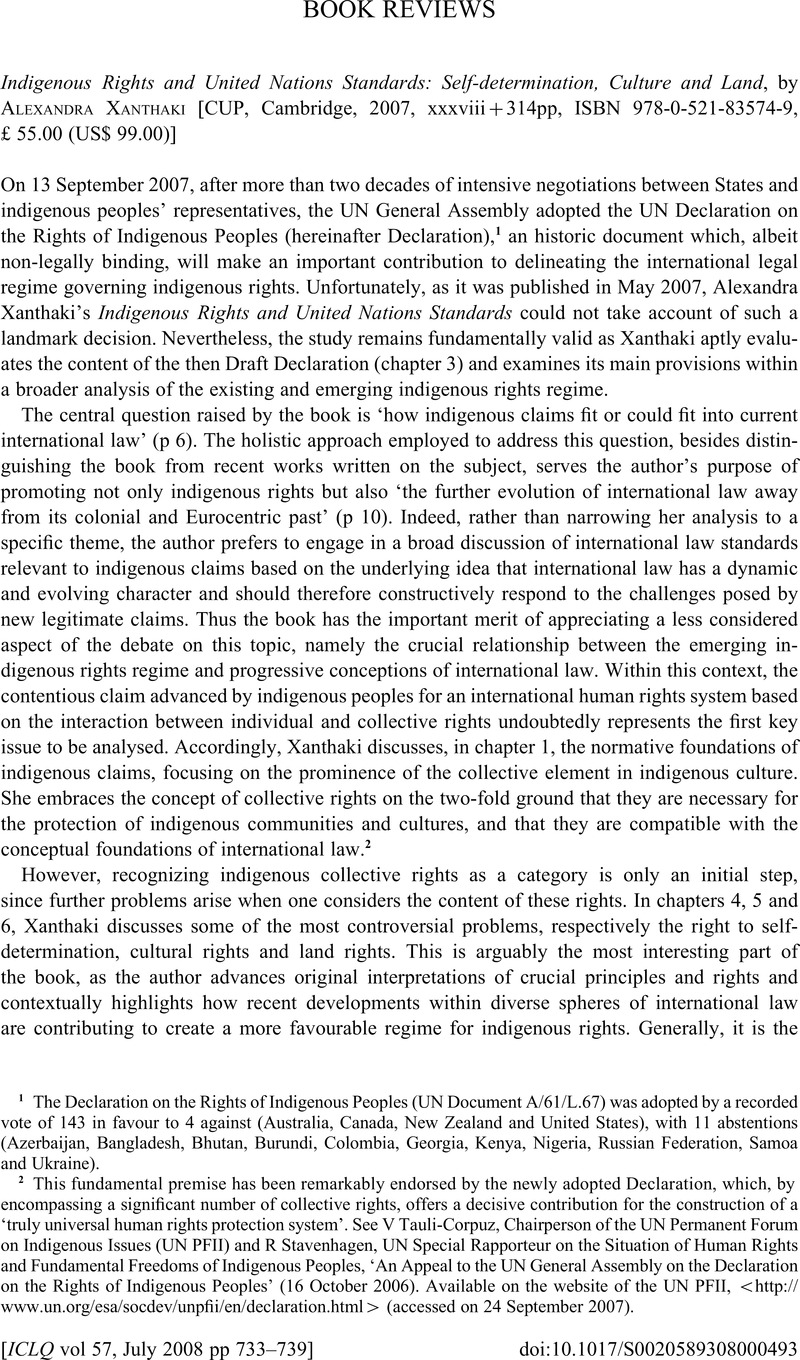No CrossRef data available.
Published online by Cambridge University Press: 11 August 2008

1 The Declaration on the Rights of Indigenous Peoples (UN Document A/61/L.67) was adopted by a recorded vote of 143 in favour to 4 against (Australia, Canada, New Zealand and United States), with 11 abstentions (Azerbaijan, Bangladesh, Bhutan, Burundi, Colombia, Georgia, Kenya, Nigeria, Russian Federation, Samoa and Ukraine).
2 This fundamental premise has been remarkably endorsed by the newly adopted Declaration, which, by encompassing a significant number of collective rights, offers a decisive contribution for the construction of a ‘truly universal human rights protection system’. See V Tauli-Corpuz, Chairperson of the UN Permanent Forum on Indigenous Issues (UN PFII) and R Stavenhagen, UN Special Rapporteur on the Situation of Human Rights and Fundamental Freedoms of Indigenous Peoples, ‘An Appeal to the UN General Assembly on the Declaration on the Rights of Indigenous Peoples’ (16 October 2006). Available on the website of the UN PFII, <http://www.un.org/esa/socdev/unpfii/en/declaration.html> (accessed on 24 September 2007).
3 Indeed even though one accepts the fundamental premise, namely that the right to self-determination does not encompass economic claims as such, to accommodate land rights through the right to development, which thus far has been recognized solely in soft-law documents, including the Declaration, and whose content and beneficiaries are still object of debates, could prove even more problematic.
4 Yet it is important to stress that this interpretation would not rule out the right to remedial secession.
5 The case of the UK is instructive. After the adoption of the Declaration, the UK representative stated at the General Assembly that ‘the United Kingdom understood article 3 of the Declaration as promoting the development of a new and distinct right of self-determination, specific to indigenous peoples – separate and different from the existing right of all peoples to self-determination in international law’. In particular, she stressed that ‘subsequent articles of the Declaration sought to set out the content of that new “right” which was to be exercised, where it applied, within the territory of a State and was not intended to impact in any way on the political unity or territorial integrity of existing States’. Available on the website of the United Nations Department of Public Information, News and Media Division, New York, <http://www.un.org/News/Press/docs/2007/ga10612.doc.htm> (accessed on 24 September 2007).
6 Respectively Article 4 and 3 of the Declaration.